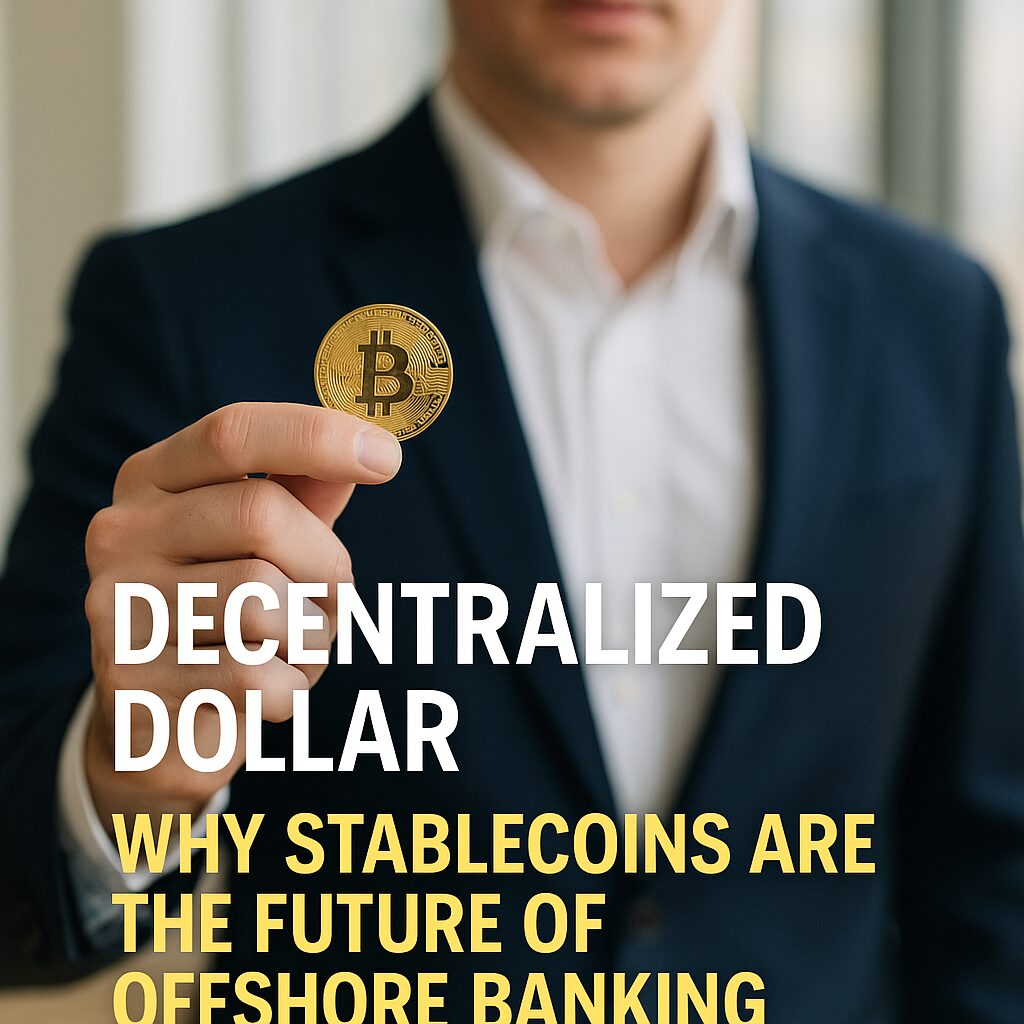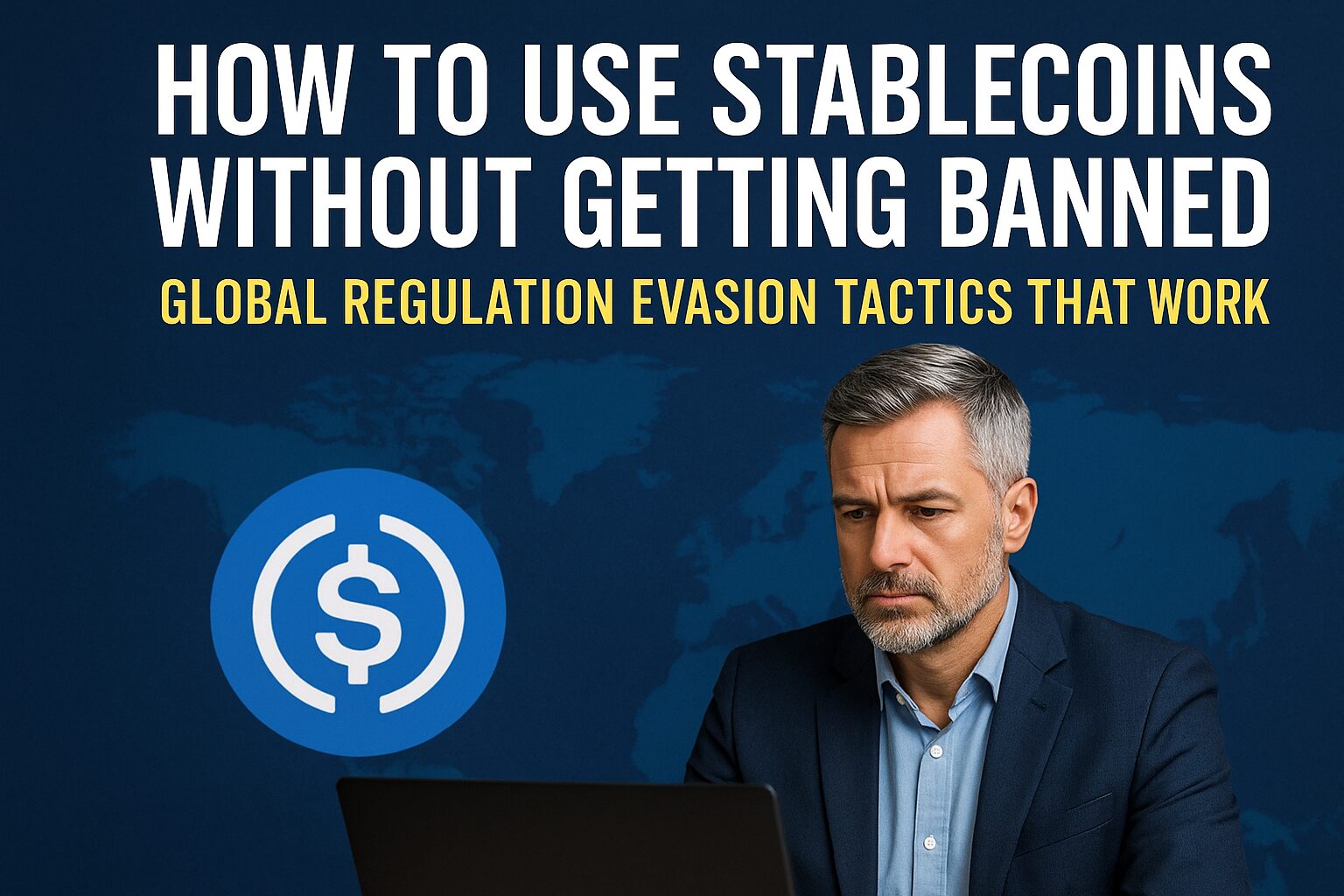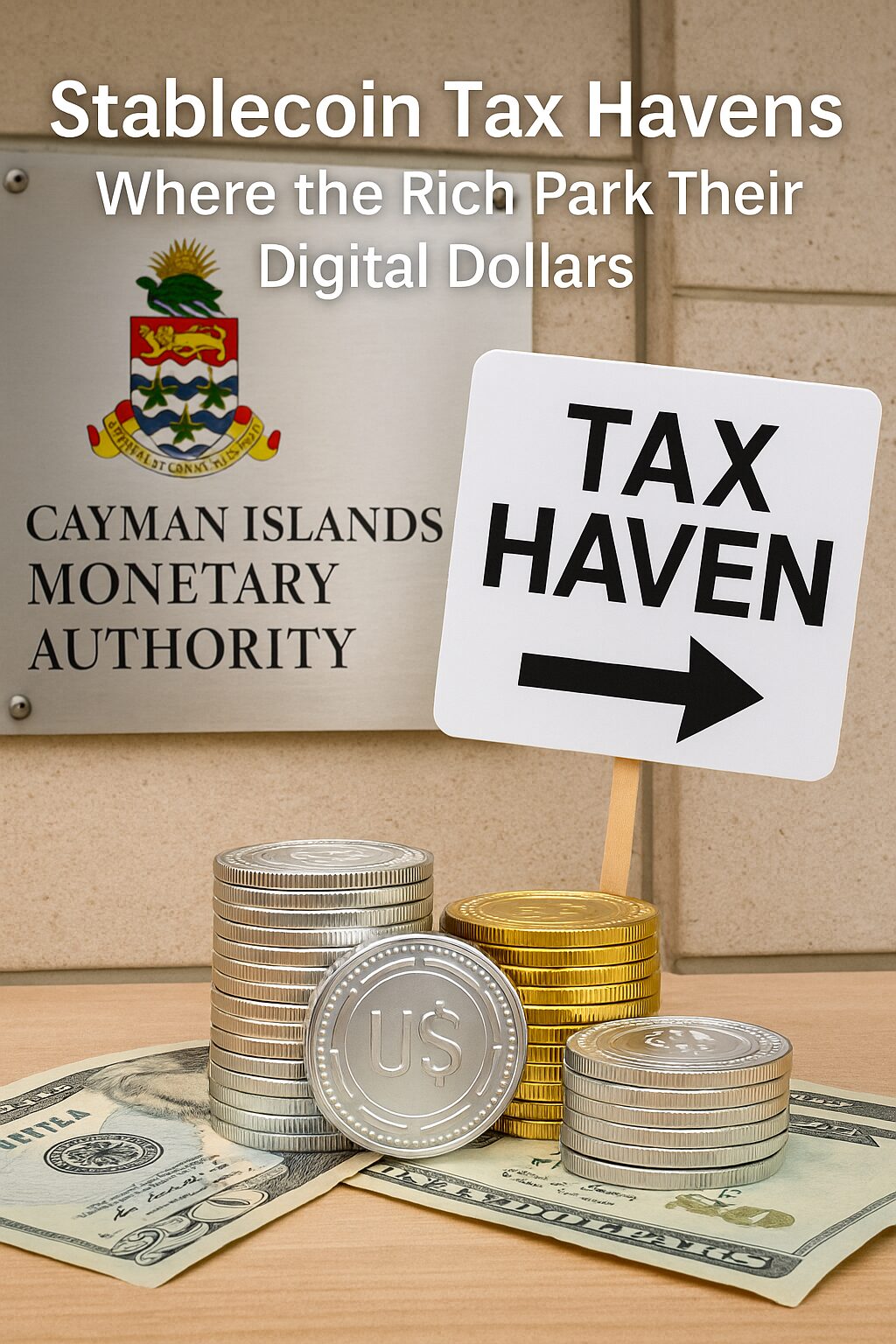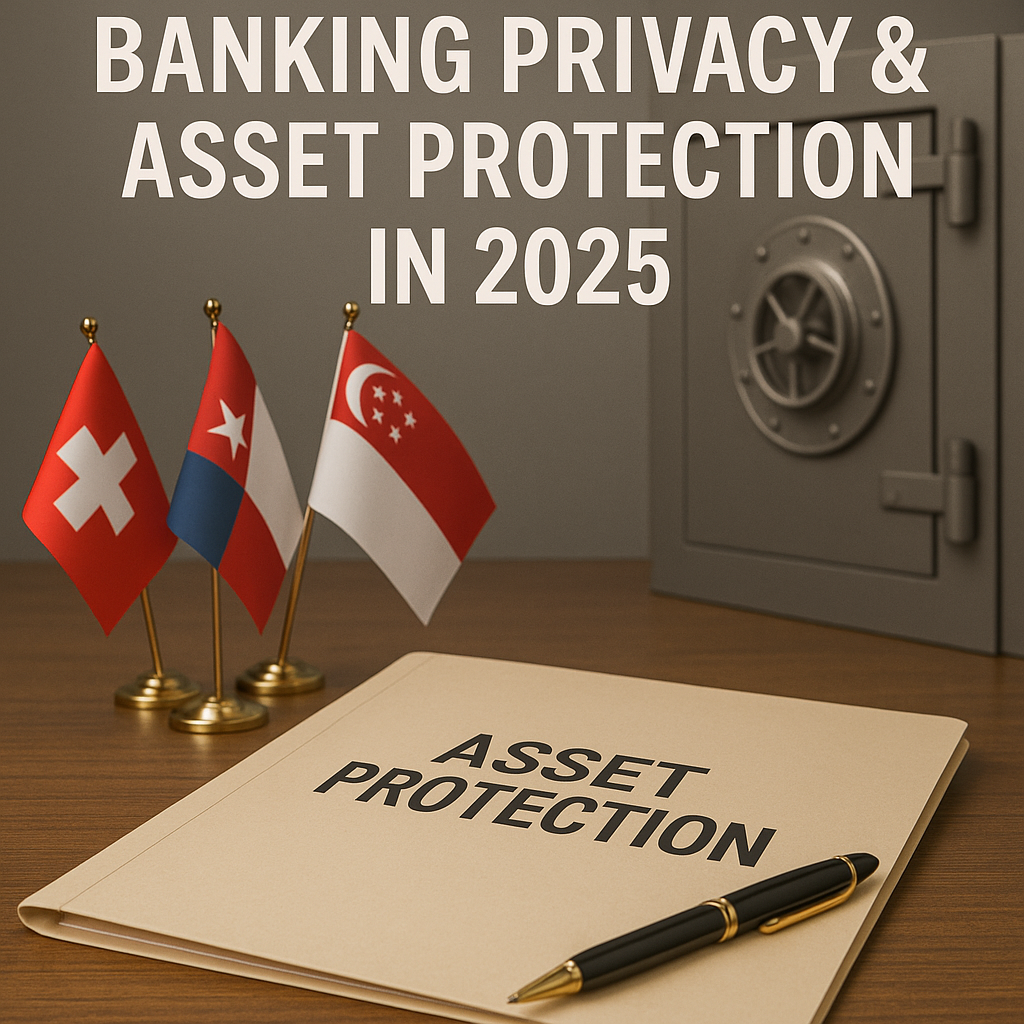For decades, offshore banking has been a tool for asset protection, privacy, and strategic finance. But today, the internet offers a decentralized alternative: stablecoins. These digital assets replicate many of the benefits of offshore accounts—without the banks, paperwork, or borders.
Stablecoins allow you to store, transfer, and protect USD-equivalent value globally. In this article, we explore how stablecoins are rapidly becoming the new offshore banks for digital-age investors.
What Is Offshore Banking and Why People Use It
Offshore banking refers to holding funds in a financial institution outside your home country. Common goals include:
- Asset protection from litigation or confiscation
- Currency diversification and inflation hedging
- Tax optimization through favorable jurisdictions
- Financial privacy from home-country regulations
Traditional offshore setups often require high minimums, complex paperwork, and legal guidance. But stablecoins offer similar outcomes—instantly and anonymously.
How Stablecoins Replicate Offshore Features
- Privacy and Control
Use of non-custodial wallets ensures that no third party controls your funds. - Global Accessibility
Unlike banks, stablecoins are accessible 24/7 from anywhere—no branch visits, no account freeze. - Currency Stability
Pegged to the U.S. dollar, stablecoins like USDT and USDC give you dollar exposure in any country. - Programmability
Funds can be moved, split, or secured using smart contracts—something no offshore bank provides. - Multi-Wallet Diversification
You can divide funds across wallets, blockchains, and even identities.
Use Cases of Stablecoins as Offshore Substitutes
- Digital Exile Wealth
Citizens in unstable regimes store their savings in USDT, shielding from hyperinflation and capital controls. - Borderless Business Operations
Global entrepreneurs use stablecoins for vendor payments, payroll, and revenue storage. - Crypto Tax Hedging
Some investors park profits in stablecoins to defer taxes until repatriation or reinvestment. - Safe-Haven Asset for Political Refugees
Escaping regions like Venezuela, Lebanon, or Myanmar, refugees rely on stablecoins stored on phones or USBs.
Platforms Enabling Offshore-Style Benefits
- Non-custodial wallets: MetaMask, Rabby, Trust Wallet
- Private chains and mixers: Tornado Cash (where legal), zkSync, TRON
- P2P conversions: Binance P2P, OKX P2P, LocalCryptos
- Crypto debit cards: Crypto.com, Binance Card, BitPay for global access
- Cold storage solutions: Ledger, Trezor, Safepal for offline asset protection
These tools give users offshore-grade control over their money, but without the Swiss bank fees.
Is This Legal? Understanding the Risks
Using stablecoins for offshore-style purposes isn’t inherently illegal, but several risks apply:
- Regulatory compliance: Some countries require reporting of foreign-held crypto.
- IP tracking and metadata leaks: Anonymity can be broken via exchange KYC or blockchain analytics.
- Tax evasion consequences: Hiding income in stablecoins without disclosure may lead to prosecution.
- Smart contract vulnerabilities: Funds stored in DeFi vaults are not insured.
Caution and education are critical before treating stablecoins like a financial haven.
How to Use Stablecoins Safely as an Offshore Alternative
- Understand your jurisdiction’s rules
Know the crypto tax laws and reporting requirements where you reside. - Separate wallets for spending vs. saving
Maintain privacy and limit traceability. - Use multi-sig or DAO-controlled wallets
For extra protection and shared custody if operating as a group or family. - Avoid centralized exchanges when possible
Use P2P or bridges to maintain ownership. - Track but don’t expose
Use portfolio trackers that don’t link to your personal identity.
Conclusion – Offshore Is No Longer a Place. It’s a Protocol.
Stablecoins are doing what offshore banks used to do—only better, faster, and cheaper. They let individuals take custody of digital dollars, store them globally, and access them instantly.
In a world of growing financial surveillance and instability, stablecoins offer a sovereign path to wealth protection. The future of offshore finance isn’t a secret bank account—it’s a wallet with no borders.



